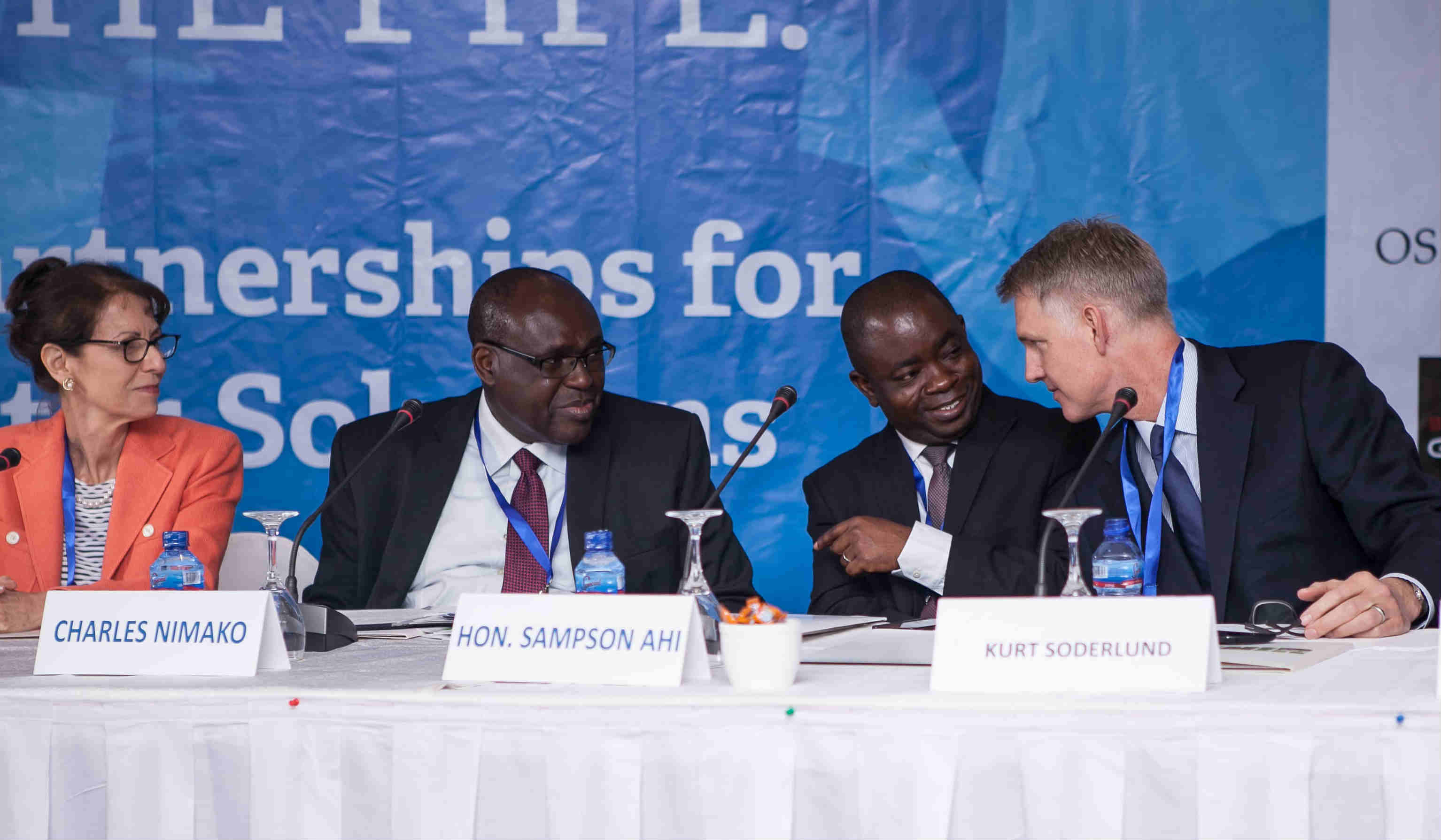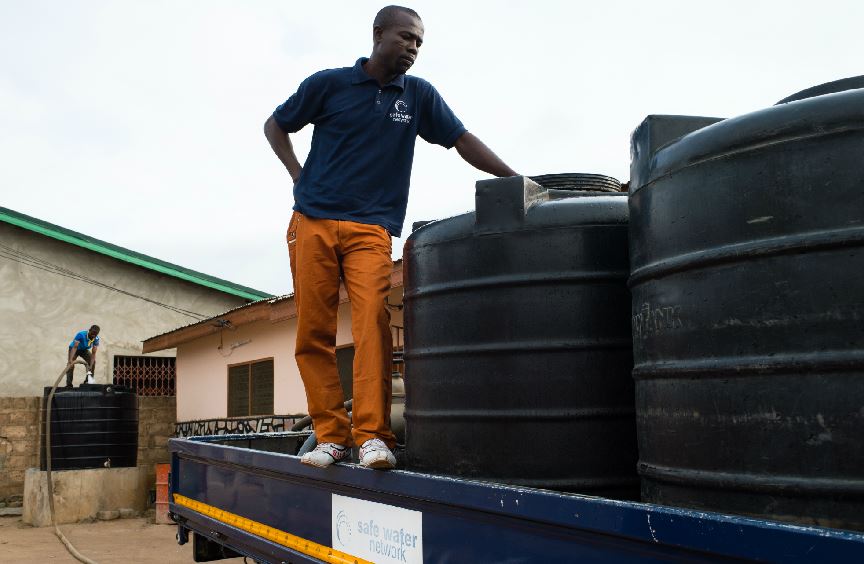Today marks the 23rd UN World Water Day, a day to learn more about water related issues and, more importantly, to take action. This year’s theme of “Better water, Better jobs” aims to bring attention to the nearly 1.5 billion who work in water related sectors. This is of great relevance to the Mobile for Development Utilities programme as our mission is to unlock commercially sustainable business models that leverage mobile to deliver improved energy, water and sanitation services in emerging markets at affordable rates.
One of our 21 current grantees, Safe Water Network, truly embodies the “Better water, Better jobs” motto by transforming communities and economies through their Safe Water Stations in India and Ghana. The Safe Water Stations provide a market-based solution to deliver reliable and affordable safe water. Since 2008, they have provided daily access to safe water to over a quarter of a million people! Additionally, they provide the training, tools and support to ensure the system can be locally managed and operated through the customers’ payments.
On a recent trip to Ghana, I attended their annual forum, “Beyond the Pipe: Financing and Partnerships for Community Water Solutions” and visited two water stations.
The 2016 Beyond the Pipe Forum was held in Accra, Ghana on Wednesday, March 16. (L-R: Amanda Gimble, Senior Vice President Strategic Programs, Safe Water Network; Charles Nimako, Director, Africa Initiatives, Safe Water Network; Hon. Sampson Ahi, Deputy Minister of Water Resources, Works and Housing; Kurt Soderlund, CEO, Safe Water Network)
The forum provided an excellent opportunity for various members of the Ghanaian water ecosystem, from government, to public and private companies as well as donors and NGOs, to discuss creative financing opportunities. Key amongst them were the creation of the Ghana Water Enterprise Trust (GWET) and Public-Private Partnerships (PPP). Progress in scaling up off-grid community water systems is significantly hindered by a lack of financing, good governance and financial accountability. The GWET could be a model to manage funds and capital assets, attract capital investment, diversify operating risk and ensure operating and quality standards are met. Additionally, considering PPPs in small towns and peri-urban areas could be another model to provide several millions with reliable safe water access. Safe Water Network has designed a PPP pilot project in the peri-urban community of Danfa along with the Danfa Water Board and Kingdom of Water Ltd.
The forum was highly interactive and the passion of the attendees was clearly visible. To understand this passion and to see the impact of Safe Water Network first hand, I visited two H2Ome! Water stations in Amasaman & Obeyeyie. Not only do the water stations in Ghana provide a cost-effective and sustainable community water supply, but they also serve as a catalyst for local employment and business opportunities. The water stations employ two operators and one vendor at each location. Additionally, as seen in the photo below, the station in Amasaman in particular serves as a distribution point for household and commercial water delivery companies.
A truck delivers safe, reliable water from a H2Ome! Water Station in Amasaman to members of the community, improving convenience and ease of water access.
These two stations combined provide clean water to approximately 9,000 inhabitants, each station with capacity to provide 1.3M litres per month. To top it all off, the stations generate enough revenue from water sales to cover operating and maintenance costs. The GSMA M4D Utilities team is excited to work with Safe Water Networks to pilot a new mobile monitoring and response system to enable lower operating & maintenance costs. Station operators currently keep intensive paper records of operational and financial records as well as water quality and station upkeep. These records are then sent to headquarters in Accra and ultimately to New York to be added to their company-wide database. It’s a lengthy process that leads to delayed reaction times when issues occur. The mobile app will allow water station operators to upload information so that managers at the local and national levels can make data-based decisions in near real time. Pen and paper have supported Safe Water Network to reach their current impact levels but we envision mobile will take them to the next level of scale.
This trip sparked a lot of reflection on water access issues and the creative ways organisations are thinking about financing water projects and the innovative business models that support them. We hope that this blog has ignited your thoughts on World Water Day and we invite you to learn more by visiting Safe Water Network or GSMA M4D Utilities.



